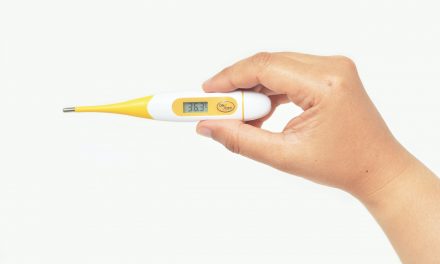The symptoms of intestinal parasites arise due to the ingestion of the eggs and cysts of these microorganisms, which are present in the soil, raw meats, or dirty surfaces and that develop in the intestine, causing symptoms such as bloating and abdominal pain or itchy anus.
The presence of parasites is more common in children because they have the immune system in the development phase and more significant contact with the floor and dirt, putting their hands in their mouths and ingesting the microorganisms.
To find out if you may have intestinal parasites, select the symptoms below:
1. Constant abdominal pain- Swollen belly or excess gas
- Frequent tiredness for no apparent reason
- Itching in the anus
- Periods of diarrhea interspersed with constipation
- Presence of small white dots in the stool
- Weight loss for no apparent reason
- Appetite disorders with little or no hunger
- Very dark stools
Although it is more common for intestinal symptoms to appear, it is also possible that parasites develop in other places outside the intestine, such as in the stomach, lungs, or brain, for example, and can cause other symptoms such as nausea, vomiting, heartburn, cough, fever, shortness of breath and neurological disorders. In cases, parasites in the intestine cause abdominal distention, causing a slight discomfort around the navel.
Symptoms of parasites in babies and children
Symptoms of parasites in babies and children can be:
Vomiting, diarrhea, or cramps;
Lack of desire to play;
Swollen belly, which does not disappear after an abdominal massage;
Itching in the anus, especially at night, making it difficult to sleep;
Presence of worms in the baby's diaper, anus, or stool;
Yellowish skin;
Stunted growth.Symptoms of parasites in infancy appear mainly in babies over six months of age due to their more significant contact with the floor and dirt. In these cases, it is essential to consult the pediatrician to start the appropriate treatment.
Treatment for intestinal parasites
The best treatment for intestinal parasites is done with the ingestion of antiparasitic medications. Still, it is also important that during and after treatment, they wash their hands well to avoid the transmission of the eggs of these parasites to other individuals, especially after defecation or before cooking, for example.
It is also essential that hygiene and preventive measures are adopted to avoid transmission to other people. So it is necessary to wash your hands well after using the bathroom and before preparing food, avoid consuming potentially contaminated food and water, keep nails trimmed, and cook meat well, for example. Learn more about treating intestinal parasites.
What are the most used drugs?
The most commonly used drugs are Albendazole and Mebendazole. Still, a general practitioner should be consulted before using any of these drugs because there are various types of intestinal parasites and other antiparasitics such as Secnidazole, Tinidazole, and Metronidazole, for example.
These drugs can be purchased at the pharmacy in a single-dose tablet or syrup for adults and children over two years of age. However, their use varies according to the type of parasite, so it is essential to see a doctor to identify the cause.
Intestinal worms
Fortunately, the most common type of roundworm that infests children, the roundworm, is essentially harmless. Pinworm is unsightly and can cause itching and vaginal discharge in girls, but it is not responsible for the most severe medical concerns. Pinworms cause more social situations than medical problems.
Pinworms are easily spread from one child to another through the transfer of eggs. Often, an infected child scratches, pick up an egg, and then moves it to the sandbox or toilet seat, where another child unconsciously picks it up and then transfers it to their mouth. The eggs are swallowed, then hatched, and the intestinal worm reaches the anus to deposit its eggs again. Pinworms are usually itchy around your child’s bottom at night. Girls also suffer from vaginal itching. If you look at the skin around the anus, you can see the worms Deltas, which are whitish-gray and very thin, are about 1/4 to 1/2 inch (0.63 to 1.27 cm) long. Your pediatrician can collect some of the worms and eggs by applying the sticky side of transparent tape to the skin around the anus. The video can be examined under a microscope to confirm the presence of the parasite.
Treatment
Pinworms can easily be treated with oral prescription medication, taken in a single dose, and then repeated in a week or two. This medicine makes pinworms mature so that they are expelled through bowel movements. Some pediatricians may advise treating other family members in the same way since some of them can be a carrier without having any symptoms. This medicine is not recommended for use in children under two years of age. Also, when the infection resolves, the child’s underwear, bedding, and sheets will need to be carefully washed to reduce the risk of reinfection.
Prevention
It is complicated to avoid pinworms, but here are some suggestions that may be helpful.
Please encourage your child to wash his hands after using the bathroom.
Encourage your babysitter or child's caregiver to wash toys frequently, mainly if pinworms were found in one or more children.
Please encourage your child to wash their hands after playing with the house cat or dog, as these pets can carry eggs in their fur.




